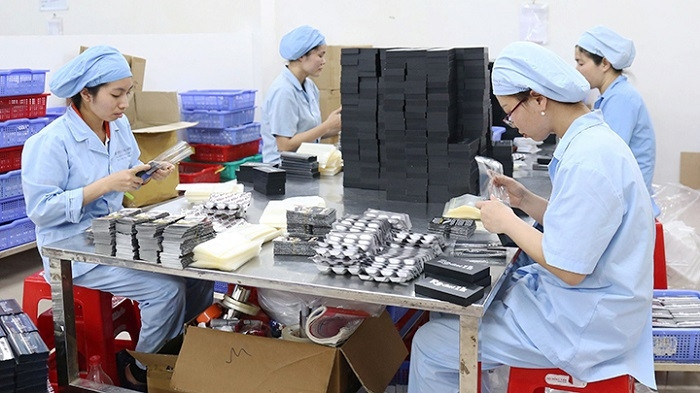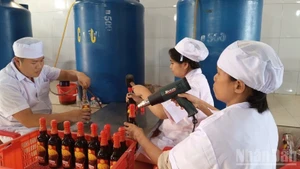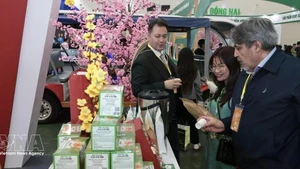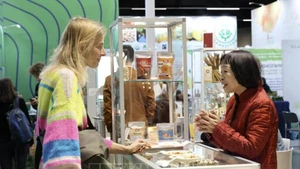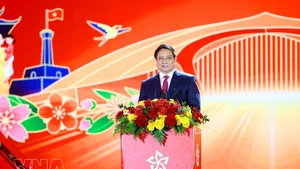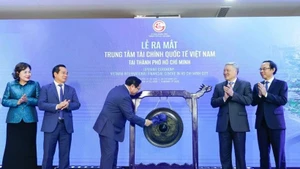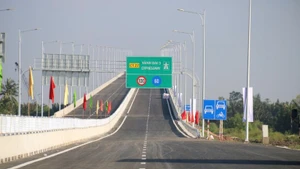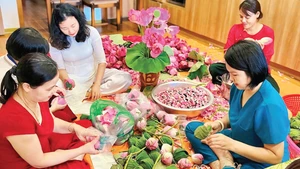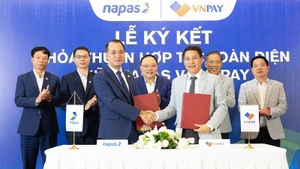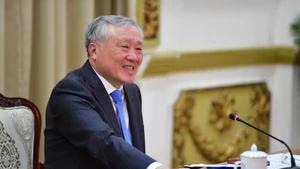>>> National Quality Awards 2019-2020 bestowed on 116 businesses
With its criteria for comprehensive assessment of the quality of businesses, the awards have long been associated with productivity and quality activities in localities throughout the country.
They are built on the basis of applying the criteria of the US NQAs and belong to the Asia Pacific Quality Organisation Awards system. The criteria for winners of Vietnam’s NQAs are specified in Article 27 of Decree No. 132/2008/ND-CP of the Government, detailing the implementation of a number of articles of the Law on Product and Goods Quality, including these seven criteria: the role of leaders; strategic planning; customer orientation; measurement analysis and knowledge management; their orientation on human resources; operating processes and management; and performance results.
The seven criteria are divided into 18 categories and presented across more than 200 detailed questions, evaluating not only standard manufactured goods, but also comprehensive business performance. For example, with the criterion leadership role, an enterprise needs to show how its top manager established its vision and mission, and how to organise and disseminate such vision and mission to employees. Leaders must create all conditions for employees to maximise their capacity in implementing set goals. With the strategic planning criteria, enterprises must demonstrate the setting of strategic goals and action plans designed to meet the needs of the market and market competition, as well as technological change and its effect on business operations.
The awards are considered and presented annually by the Prime Minister to businesses that fully meet the above criteria. The selection process is very strict, moving through two levels: the pre-qualification councils in the provincial and municipal level and the national councils. After 25 years of implementation, the number of participating enterprises is increasing. 2,030 enterprises have been honoured at the awards, of which 280 have been granted the National Quality Gold Award. In particular, in 2019 and 2020, despite the impact of the COVID-19 pandemic, there were still thousands of enterprises registered to participate and 116 enterprises were honoured.
According to experts, the awards are essentially for businesses to develop comprehensively and sustainably. Sustainability demonstrates the firm's resilience to external shocks. For example, for ordinary businesses not interested in developing human resources, when a crisis occurs, they immediately cut down their human resources or find ways to limit costs. But for businesses that have participated in the NQAs, one of the seven evaluation criteria is to develop better human resources, so the business will find ways to retain talented people and find opportunities for recovery and development.
During the prevalence of COVID-19, despite being heavily affected, enterprises that have been honoured or participated in the programme have shown good resilience and ability to overcome difficulties. Deputy General Director of Sao Thai Duong Joint Stock Company Nguyen Thi Huong Lien shared that in 2020, her company won the awards. During the outbreak of COVID-19, the company invested in products that help solve social problems, such as researching and manufacturing COVID-19 test kits and other anti-epidemic products. Thanks to the preparation of the quality management system and human resources, the company has adapted to the circumstances, thus creating valuable products for the business itself and the society at large.
After winning the award, many businesses continue to maintain the criteria in their production processes to ensure productivity and product quality. General Director of Tien Phong Plastic Company Chu Van Phuong said that in 2010, the enterprise received an NQA and thereby enhanced its prestige, brand strength and customer confidence in the company's products. After more than 10 years applying NQAs criteria to its production and business processes, the company can check its strengths and weaknesses, human resource requirements, and management and production processes, whether these are all in accordance with the awards’ criteria. Notably, in terms of technology investment, the company always updates its latest production technology and uses Europe's most modern machinery and equipment to produce high quality, competitive products.
Assessing the effectiveness of the NQAs, Deputy Director of Directorate for Standards, Metrology and Quality (under the Ministry of Science and Technology) Nguyen Hoang Linh said that when participating in the awards, businesses not only have the opportunity to be commended and rewarded by the Prime Minister, but also gain access to perfect production and business models, in addition to approaching an advanced self-assessment tool based on matching their performance with the criteria of the NQAs. They can thus comprehensively evaluate their activities as well as production and business results under international standards, defining the current state of management qualifications and quality, identifying achievements, weaknesses, success opportunities and future missions, from which proposing appropriate improvement measures. Participating in the awards not only helps enterprises improve themselves but also improves the productivity, quality and competitiveness of their products and services in the market.
Regarding difficulties applying the awards’ criteria, many businesses say that most of the criteria have sustainable development goals for them but increase costs. Meanwhile, performance criteria require production and business to be efficient. Therefore, enterprises must invest in scientific research, create good products to bring high profits, compensate themselves for the costs they have invested or create cheap but high quality products in the market. Enterprises can apply automation and information technology to the production process to improve productivity and product quality, ensure efficient production, but have problems ensuring jobs for labourers. In addition, it is necessary to improve promotion for the NQAs activities as well as providing training for experts and evaluating and offering training for enterprises who wish to participate in the awards.
Linh said that with the responsibility as assigned by the Ministry of Science and Technology to lead and implement the awards, in the near future, his directorate will deploy the seven criteria as tools to help the business community apply, monitor and evaluate annual production results. The agency also wishes to build a model based on enterprises that have successfully applied the awards’ criteria and those who have won the NQAs in order to share this experience with others to follow.
Networking and developing a team of consultants for businesses based on the application of the awards’ criteria will be focused on in order to effectively support prequalification councils in localities, ministries, agencies and also at national councils. At the same time, it will promote the implementation of a new mechanism for ministries and units to proactively propose, consider and select typical excellent enterprises in their fields of operation to introduce them to the national award council, while promoting communication activities and sharing experiences and values from award-winning businesses to the business community and consumers to be aware of high-quality products produced by Vietnamese enterprises.
